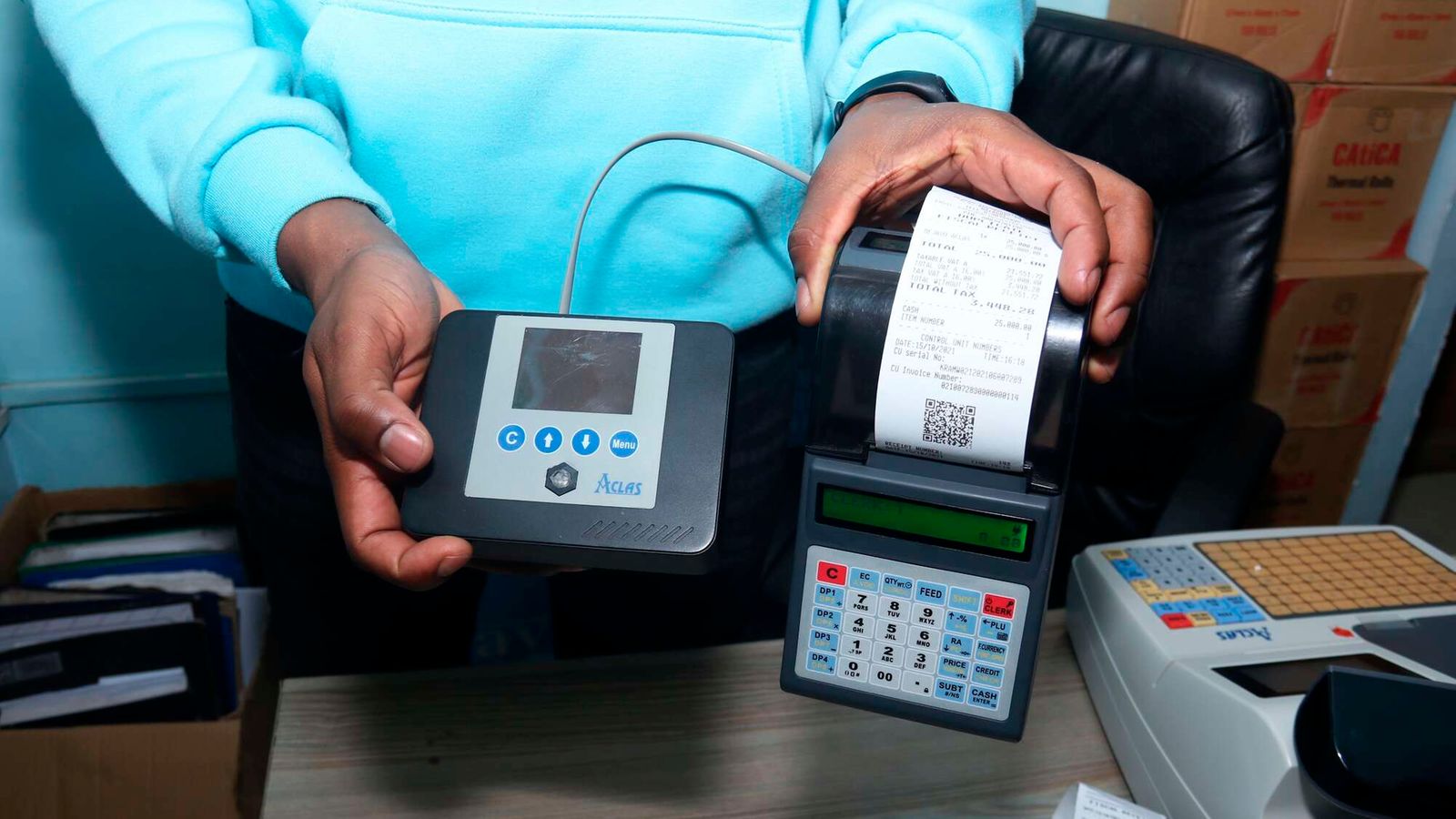
Moses Kuria, a senior economic adviser to the President, has spoken of a plan to integrate mobile wallets, specifically pay bill and till numbers, with the Kenya Revenue Authority (KRA)’s electronic tax registers (ETRs) .
On the face of it, the proposal has positive aspects, which include widening the tax base and increasing tax revenue collected from businesses and the informal sector.
With access to transaction data from the informal sector, the government will have a clearer picture of the country’s economic outlook, which is key in formulating fiscal policies.
For purchasers or consumers of services, digital tax receipts will mark a shift from bulky ETR receipts whose storage is cumbersome and often fade quickly, making them illegible.
To businesses, the hardcopy ETRs present a storage challenge, especially given that the law requires tax records to be kept for at least five years from the transaction date.
On the flip side, the proposal may deepen financial exclusion if not well implemented, as businesses will likely shun payments through mobile wallets. Financial exclusion occurs when individuals or businesses are denied access to appropriate financial products and services such as savings accounts, loans, cashless transactions, and other traditional banking services.
In most cases, financial exclusion results from a myriad of factors such as lack of identification documents, distrust of the formal financial system, and lack of physical access to banks.
With the proposal, financial exclusion would widen should merchants prefer cash payment as a tax evasion strategy, thus making a significant population in the informal sector to revert to cash payments. Currently, a number of businesses in the informal sector have shied away from using mobile wallets and have instead adopted the send money option.
Some have informally partnered with mobile money agents, allowing their customers to pay by making withdrawals via the partner agents. Others still prefer cash payments. Therefore, with the proposal, more business are likely to adopt cash payments, limiting cashless transactions.
Where businesses snub banking products and services like mobile wallets, and embrace cash, informal value transfer systems, mattress banking, and other underground banking solutions, this comes with a share of challenges related to financial exclusion.
It, for instance, limits the economic growth of financially excluded persons since the lack of transaction records impedes access to financial products like loans and overdraft facilities, which are vital to the growth of businesses.
For example, mobile money loans increase based on the scale of transactions in the mobile wallet. With significant transactions on mobile wallets, traders can access loans to boost their businesses.
However, should traders shy away from mobile wallets as a tax evasion strategy, they will be locked out of critical financial services, thus crippling the growth of their business.
Second, using cash in businesses has security risks, ranging from employee theft to robbery, resulting in losses.
Third, should businesses prefer cash payments, this will have a ripple effect to the purchasers since they will be constrained to carry cash for their own convenience.
Fourth, for the government, a shift to a cash-based economy will limit its ability to collect data on the scales of trade in the informal economy to enable it to formulate appropriate fiscal policies.
Finally, financial exclusion can promote criminal activities since cash transactions do not leave a digital trail that can be tracked and analysed when investigating crimes like money laundering.
Therefore, the government should strike a balance between optimising revenue collection and promoting financial inclusion. This balance can be achieved by first identifying sectors where significant transactions occur and rolling out mandatory use of integrated ETR and mobile wallet payments in these sectors.
In any event, tax obligations like VAT are mandatory for businesses with an annual turnover of Sh5 million and above, and therefore, the rollout may not be necessary for all sectors.
The phased rollout will also help the government address teething problems progressively as it widens the net to other sectors of the economy.
Second, the government and stakeholders should sensitise the public on the scope of integration of ETR and mobile wallets. If misreported, the citizenry can understand the proposal to mean that it will apply to all mobile money solutions thus reducing the use of mobile money as a whole.
Finally, with increased revenue collection, the government has an obligation to use the taxes prudently and accountably to incentivise the public to pay taxes. Where the public fails to see value in the taxes collected, this punctures the public morale to pay taxes thus resulting in tax evasion.
The writer is an advocate, lecturer at Moi University and anti-money laundering specialist







